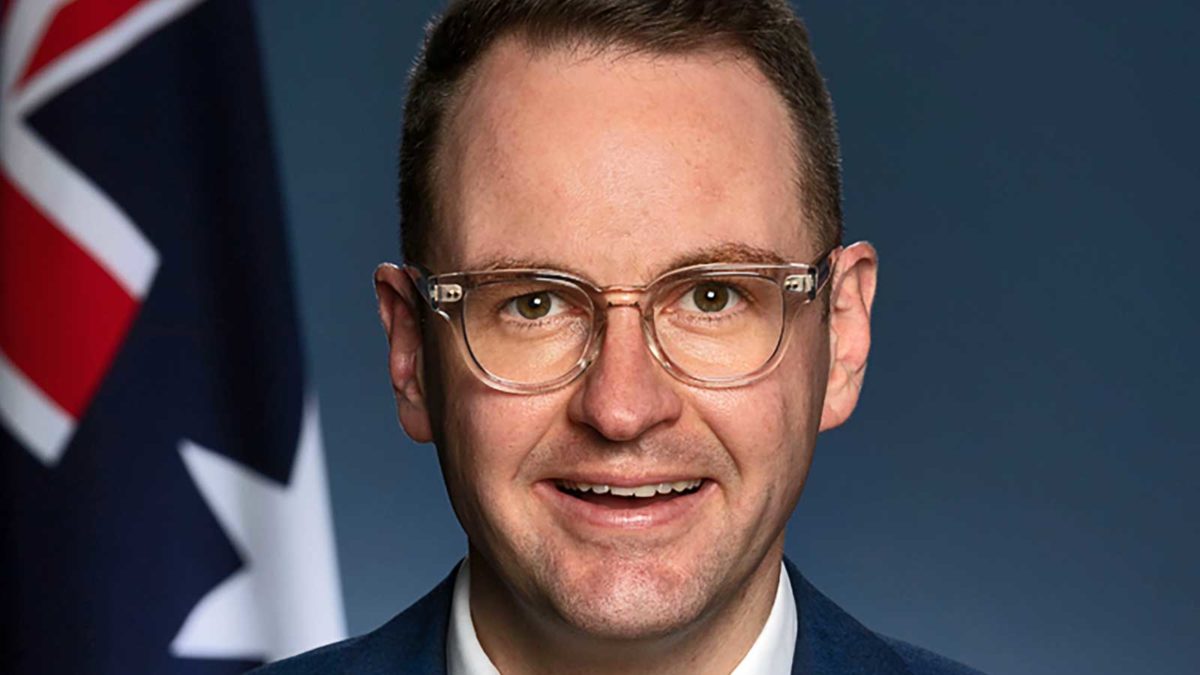Bragg reignites national fund debate with ‘Super Guarantee Australia’
Liberal senator Andrew Bragg believes the Future Fund should be made Australia’s default superannuation fund. But national superannuation is a political minefield.
In conversation with Simon Cowan, research director at the Centre for Independent Studies, Bragg called compulsory superannuation a “fundamentally illiberal, paternalistic policy” and said that the Australian government should “take its responsibilities more seriously” by making the relatively high-performing Future Fund the default fund.
“Every country that has a compulsory pension scheme, as far as I can see, has a low-cost government default fund that is a benchmark… The whole idea of outsourcing the whole thing and not worrying about how it’s going is poor and weak and unambitious,” Bragg said. “We have this system that isn’t going anywhere – we should try and fix it up.”
Bragg believes the Future Fund’s annual average return of 9.1 per cent over the last decade, which he attributes to “superior management”, makes it the prime candidate for the default fund. His scheme – Super Guarantee Australia” (SGA) – would see the Future Fund “effectively acquiring” the Commonwealth Superannuation Corporation (CSC) to create its own retail facing entity. Given the Future Fund pays no tax, it would also need to have a new default fund infrastructure created within its organisation and Bragg puts forward the Queensland Investment Corporation as a possible model for achieving this.
“A simple, clean default fund with a good track record like the Future Fund could drive much better engagement and transparency,” Bragg said in his discussion paper. “Such a fund will enjoy the advantage of having primary access to superannuation members. The managers should be required to maintain high standards of corporate governance.”
One potential problem with SGA is the political ramifications of introducing a national default superannuation scheme. The super wars would become exponentially bloodier (and more ideological) if the government of the day was ultimately responsible for managing a large portion of Australians’ retirement savings, and SGA and its performance would be an easy weapon with which to bludgeon a government. When questioned on how any government would deal with the potential blowback of underperformance, Bragg said:
“I do think it would be good if Canberra felt more connected to the outcomes of the super system… I think having more skin in the game is appropriate. We are half-pregnant with this scheme, so we need to make sure that for the people who are disengaged, we take our responsibility more seriously.”

Parts of the superannuation industry have also already come out guns blazing against the idea, with Martin Fahy, CEO of the Association of Superannuation Funds of Australia, calling it an “illiberal idea” that would only create “further confusion” for Australians amidst a bevy of ongoing reforms, including Your Future Your Super (YFYS).
“I think (SGA) would be resisted heavily by vested interests,” Bragg said. “You’ve got the biggest vested interest in Australia, the super funds who receive more than $100 billion every year of our money… That’s enabled them to buy and build huge coalitions in Canberra and beyond, set up think-tanks, newspapers, the lot. These will be heavily resisted changes, just as the YFYS changes were heavily resisted.”
Cowan also raised the possibility that the Future Fund could potentially be used as a “honeypot for government spending” or to achieve political objectives by directly funding government projects or by “forcing the fund to divest itself of assets and industries they don’t like”. The Morrison Government has previously warned super funds that they are to invest only for member benefit – not for environmental or social impact – and the investment veto power that was ultimately axed from the Your Future Your Super reforms was seen as a continuation of that warning.
But Bragg believes that the sole purpose test could be applied to prevent that government from dipping into the money, despite his belief that the sole purpose test has been broken many times through investments such as those made by AustralianSuper and Cbus into “The New Daily”.
“The point here is that you apply the sole purpose test to this fund and apply a performance test to this fund. You wouldn’t be able to give it any special deal other than designating it default status,” Bragg said.
“We already run a $300 billion fund – the CSC – and nobody has ever said there should be any particular investment arrangements put in place for political purposes… if the finance minister felt under duress for political reasons, I think the finance minister would have to say “sorry, but the fund is there for the benefit of members and workers, not for any other political purpose. I think that would be very clear message that people would understand.”
According to reporting from the “Australian Financial Review”, the Morrison Government shelved a proposal to make the Future Fund the default fund as late as 2019 due to concerns it would spark a damaging industry backlash. Future Fund chairman Peter Costello has been a public advocate of the idea, though has stopped short of actually putting forward the Future Fund for the role.
“This is my personal view: instead of the government arbitrating between industry funds and private funds, there is a fair argument that compulsory payments, the so-called default payments, should be allocated to a national safety net administrator, let’s call it the Super Guarantee Agency,” Costello said in 2017. “It would be a not-for-profit agency which would set up its own investment board like the Canadian pension plan.”










